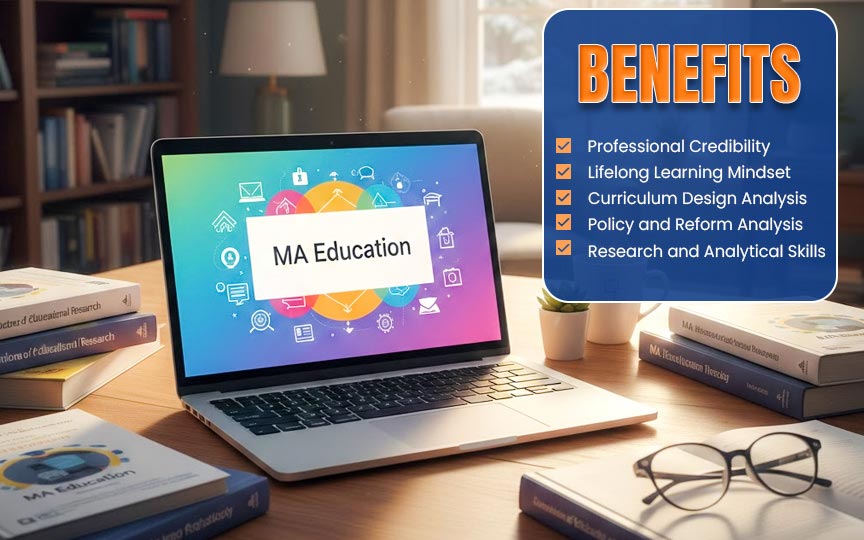The classroom of tomorrow is now a vivid reality, transcending the bounds of mere science fiction. It is undergoing a revolutionary transformation, fueled by the remarkable potential of Artificial Intelligence (AI). This evolution doesn’t involve the replacement of educators with machines; rather, it aims to enhance teachers’ capabilities, empowering them to foster a more individualized, captivating, and effective learning environment for every student.
As we witness this dynamic shift in the educational landscape, online degrees emerge as uniquely positioned to harness and benefit from these groundbreaking AI advancements, paving the way for a more accessible and enriched learning experience.
AI’s Impact on Education: A Multifaceted Approach
AI is making inroads in education in several key ways:
- Personalized Learning: One of the most significant impacts of AI is its ability to personalize learning. AI algorithms can analyze student performance, identify knowledge gaps, and tailor educational content to individual needs. This means students can learn at their own pace, focusing on areas where they need extra support. This is particularly beneficial in the realm of online degrees, where the flexibility of the platform allows for customized learning journeys.
- Intelligent Tutoring Systems: AI-powered tutoring systems can provide students with instant feedback and guidance, acting as a virtual teaching assistant. These systems can adapt to a student’s learning style and provide targeted interventions, improving comprehension and retention. For students pursuing online bachelor’s degrees, these systems offer invaluable support, especially when direct interaction with faculty might be limited.
- Automated Administrative Tasks: AI can automate time-consuming administrative tasks like grading assignments, scheduling, and even answering frequently asked questions. This frees up teachers’ time, allowing them to focus on what they do best: teaching and mentoring students. This efficiency is a boon for online degree programs, streamlining operations and enhancing the student experience.
- Enhanced Accessibility: AI tools can make education more accessible to students with disabilities. For example, AI-powered translation tools can break down language barriers, while text-to-speech and speech-to-text technologies can assist students with learning disabilities. Online degrees, already offering increased accessibility due to their flexible nature, are further amplified by these AI-driven tools.
- Predictive Analytics: AI can analyze student data to identify at-risk students and predict their academic performance. This allows educators to intervene early and provide necessary support, improving student outcomes and reducing dropout rates. This is crucial for online degrees, where student engagement can be more challenging to monitor than in traditional classroom settings.
Online Degrees: A Perfect Partner for AI in Education
The rise of online degrees in India has coincided with the advancement of AI in education, creating a synergistic relationship. Online platforms are inherently data-driven, making them ideal for integrating AI-powered personalized learning systems. Here’s how online degrees are benefiting from AI:
- Scalability: Online degree programs can leverage AI to personalize learning for a large number of students, something that would be much more challenging in a traditional classroom setting. This scalability is essential for meeting the growing demand for higher education in India.
- Flexibility: The inherent flexibility of online degrees allows students to learn at their own pace and on their schedule. AI-powered personalized learning further enhances this flexibility by tailoring the learning experience to individual needs.
- Accessibility: Online degrees, combined with AI tools, are making education more accessible than ever before. Students in remote areas, or those with disabilities, can access high-quality education from anywhere with an internet connection.
- Cost-Effectiveness: Online degrees are often more affordable than traditional degrees. AI can further reduce costs by automating administrative tasks and optimizing resource allocation.
The Future of AI in Education and Online Learning
The future of education is deeply intertwined with the advancements in artificial intelligence. As AI technology rapidly progresses, we can anticipate a wave of innovative applications that will transform the learning experience, especially in the context of online degrees. Picture vibrant, AI-powered virtual reality learning environments where students can immerse themselves in interactive simulations of historical events or complex scientific phenomena.
Choosing the Right Online Degree in India
For students looking to take advantage of the flexibility and accessibility of online learning, it’s crucial to choose the right program. When researching online degrees in India, consider the following:
- Accreditation: Ensure the program is accredited by a recognized institution.
- Curriculum: Review the curriculum carefully to make sure it aligns with your career goals.
- Faculty: Look for programs with experienced and qualified faculty.
- Technology: Inquire about the technology used by the program, including any AI-powered learning tools.
- Support Services: Check what kind of student support services are available, such as academic advising and career counseling.
Conclusion:
Artificial intelligence is revolutionizing education, creating a more personalized, engaging, and accessible learning experience. Online degrees are at the forefront of this transformation, leveraging AI to enhance the learning process and empower students.

By embracing these technological advancements, we can create a future where education is truly accessible to everyone, regardless of their background or circumstances. So, whether you’re considering an online bachelor’s degree in India or simply curious about the future of learning, it’s clear that AI is playing a pivotal role in shaping the classroom of tomorrow.







